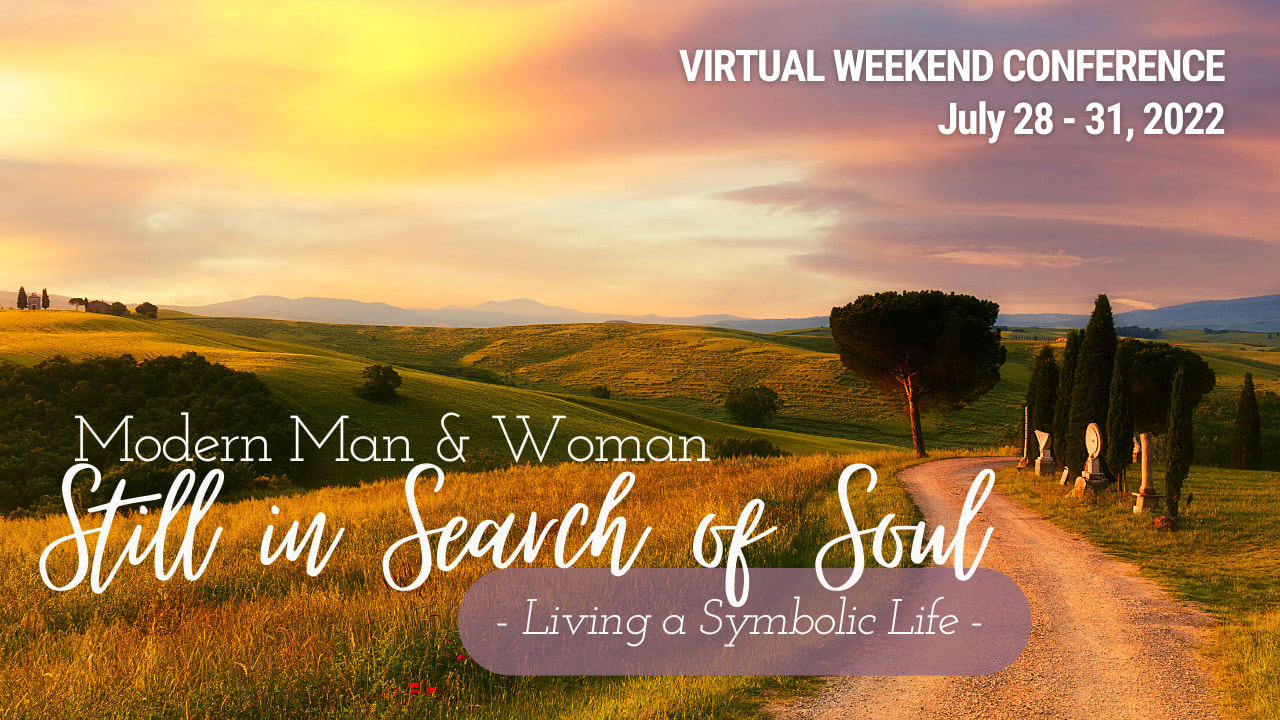Live streaming via Zoom
To accommodate our global community, this conference is offered as a multi-lingual online program
with simultaneous translation in English, Russian, and Spanish.
Registration Fee: $225
If you are not able to join the live online conference, please note that all sessions will be recorded,
and all registered participants will receive recordings afterwards.
Conference Presenters
Opening Keynote Address by Dr Susannah Heschel (USA), and joined by
Eduardo Carvallo (Venezuela, Columbia)
Michael Conforti (USA)
Magda Di Renzo (Italy)
Jacqueline Dürmüller (Switzerland)
Hansueli Etter (Switzerland)
Richard Tarnas (USA)
The full conference schedule will be available by June 2022.
Please note: Students currently enrolled for the Archetypal Pattern Analyst (APA) certification program should not register for this conference.
The conference registration fee is already included in APA tuition fees.
To accommodate our global community, this conference is offered as a multi-lingual online program
with simultaneous translation in English, Russian, and Spanish.
Registration Fee: $225
If you are not able to join the live online conference, please note that all sessions will be recorded,
and all registered participants will receive recordings afterwards.
Conference Presenters
Opening Keynote Address by Dr Susannah Heschel (USA), and joined by
Eduardo Carvallo (Venezuela, Columbia)
Michael Conforti (USA)
Magda Di Renzo (Italy)
Jacqueline Dürmüller (Switzerland)
Hansueli Etter (Switzerland)
Richard Tarnas (USA)
The full conference schedule will be available by June 2022.
Please note: Students currently enrolled for the Archetypal Pattern Analyst (APA) certification program should not register for this conference.
The conference registration fee is already included in APA tuition fees.
“There are hardly any exceptions to the rule that a person must pay dearly
for the divine gift of the creative fire."
for the divine gift of the creative fire."
C.G. Jung, Modern Man in Search of Soul, p.169
It was in 1933 that C.G. Jung wrote his great work titled Modern Man in Search of a Soul. Now in 2022 - almost 100 years since its publication - we not only continue to hunger for a connection to soul, but desperately need to listen to its wisdom.
Jung's message about the search for soul continues to resound in our hearts and souls today.
As if hearing the profound wisdom of his writings anew, if we now listen carefully enough, we can hear Jung saying:
“The nearer we approach to the middle of life, and the better we have succeeded in entrenching ourselves in our personal attitudes and social positions, the more it appears as if we had discovered the right course and the right ideals. For this reason we suppose them to be eternally valid, and make a virtue of unchangeably clinging to them. We overlook the essential fact that the social goal is attained only at the cost of a diminution of personality. Many - far too many - aspects of life which should also have been experienced lie in the lumber-room among dusty memories; but sometimes, too, they are glowing coals under grey ashes.” (The Stages of Life (1930), CW 8: p. 771)
He then adds that “the only meaningful life is a life that strives for the individual realization – absolute and unconditional – of its own particular law…To the extent that a (person) is untrue to the law of (their) being…(they have) failed to realize (their) own life’s meaning”.
In the first half of life we live with an intimation, perhaps a whispered presence of the destiny accompanying our life. However, the work of life goes on and we seem to forget about the soul and a life of meaning. Life progresses. And then one day, as if time suddenly stood still, we find ourselves reflecting back on our life as if all those events happened just yesterday.
No longer young nor ascending to yet another outer world ambition, we realize that when we were younger, finding our "sentiero sacro" - our sacred path - was either an idealistic fantasy or something that we thought we could attend to later in life. But for many of us this time has now come, confronting us with an urgency to live the life we are meant to live.
Suddenly everything about life is different as we transition into the later stages of life. Ever so clearly we now see the enormous costs involved in continuing to live out those unresolved mid-life complexes and continuing to ignore the Self's calling towards another, more authentic way of life.
And this need, coming from some other deeper, spiritual domain, calls for us to live a symbolic and sacred life that honors our soul’s calling. Now is the time to stand face to face with our destiny. To step forward with courage to change the contours of our life journeys, and to live in greater relationship with what is most sacred.
What You can Expect From Attending the Conference
Drawing together an internationally acclaimed faculty, we will discuss ways to recognize the shape, form and meaning of Psyche as it speaks to us of the need to turn towards the inner life.
With presentations from a number of world leaders in the fields of Jungian Psychology and Spirituality, we will look at what it means to live according to the ways of the soul, and how to recognize and listen to the symbolic urgings of the Self, moving us ever closer to what may be called a spiritual life.
Originally scheduled to be held in-person in Assisi, Italy, this conference was recently postponed until the Summer of 2023. However, to accommodate the interest shown in the conference and to make it available to our greater international community, The Assisi Institute has decided to continue with the program and to change the format to an online conference.
Jung's message about the search for soul continues to resound in our hearts and souls today.
As if hearing the profound wisdom of his writings anew, if we now listen carefully enough, we can hear Jung saying:
“The nearer we approach to the middle of life, and the better we have succeeded in entrenching ourselves in our personal attitudes and social positions, the more it appears as if we had discovered the right course and the right ideals. For this reason we suppose them to be eternally valid, and make a virtue of unchangeably clinging to them. We overlook the essential fact that the social goal is attained only at the cost of a diminution of personality. Many - far too many - aspects of life which should also have been experienced lie in the lumber-room among dusty memories; but sometimes, too, they are glowing coals under grey ashes.” (The Stages of Life (1930), CW 8: p. 771)
He then adds that “the only meaningful life is a life that strives for the individual realization – absolute and unconditional – of its own particular law…To the extent that a (person) is untrue to the law of (their) being…(they have) failed to realize (their) own life’s meaning”.
In the first half of life we live with an intimation, perhaps a whispered presence of the destiny accompanying our life. However, the work of life goes on and we seem to forget about the soul and a life of meaning. Life progresses. And then one day, as if time suddenly stood still, we find ourselves reflecting back on our life as if all those events happened just yesterday.
No longer young nor ascending to yet another outer world ambition, we realize that when we were younger, finding our "sentiero sacro" - our sacred path - was either an idealistic fantasy or something that we thought we could attend to later in life. But for many of us this time has now come, confronting us with an urgency to live the life we are meant to live.
Suddenly everything about life is different as we transition into the later stages of life. Ever so clearly we now see the enormous costs involved in continuing to live out those unresolved mid-life complexes and continuing to ignore the Self's calling towards another, more authentic way of life.
And this need, coming from some other deeper, spiritual domain, calls for us to live a symbolic and sacred life that honors our soul’s calling. Now is the time to stand face to face with our destiny. To step forward with courage to change the contours of our life journeys, and to live in greater relationship with what is most sacred.
What You can Expect From Attending the Conference
Drawing together an internationally acclaimed faculty, we will discuss ways to recognize the shape, form and meaning of Psyche as it speaks to us of the need to turn towards the inner life.
With presentations from a number of world leaders in the fields of Jungian Psychology and Spirituality, we will look at what it means to live according to the ways of the soul, and how to recognize and listen to the symbolic urgings of the Self, moving us ever closer to what may be called a spiritual life.
Originally scheduled to be held in-person in Assisi, Italy, this conference was recently postponed until the Summer of 2023. However, to accommodate the interest shown in the conference and to make it available to our greater international community, The Assisi Institute has decided to continue with the program and to change the format to an online conference.
Your browser does not support viewing this document. Click here to download the document.
Download the Conference Program below:
| 2022_in_search_of_soul_conference_program.pdf | |
| File Size: | 3092 kb |
| File Type: | |
About the presenters:
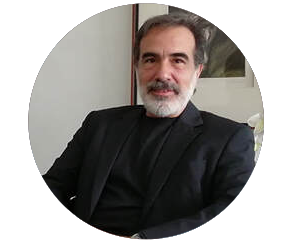
EDUARDO CARVALLO (Venezuela/Colombia)
Eduardo Carvallo, MD, is a psychiatrist and a Jungian analyst. His analysis was conducted by Rafael López-Pedraza, one of the founders of Archetypal Psychology and with whom he studied with for more than 15 years.
Eduardo is actively involved in training candidates from around the world in Jungian Analysis, including Venezuela, Colombia, and Ecuador. He also supervises analysts and candidates/routers in Argentina, Chile, Panama, Spain, and the USA. This experience has allowed him to move deeply into different aspects of the cultural Psyche, and he has published many articles in Jungian journals about clinical, cultural and political issues from the Jungian perspective.
He completed his training as an Archetypal Pattern Analyst at Assisi Institute, and serves as a Senior Faculty Member teaching in our programs in Latin-America, Russia, and the United States.
Currently, he is the President of the Colombian Society of Jungian Analysts and the elected president of the Latin American Committee for Analytical Psychology and serves on the Ethics Committee of the IAAP.
Since 2011, after leaving his home country Venezuela, he maintains a private practice in Bogotá, Colombia while lecturing internationally.
Eduardo Carvallo, MD, is a psychiatrist and a Jungian analyst. His analysis was conducted by Rafael López-Pedraza, one of the founders of Archetypal Psychology and with whom he studied with for more than 15 years.
Eduardo is actively involved in training candidates from around the world in Jungian Analysis, including Venezuela, Colombia, and Ecuador. He also supervises analysts and candidates/routers in Argentina, Chile, Panama, Spain, and the USA. This experience has allowed him to move deeply into different aspects of the cultural Psyche, and he has published many articles in Jungian journals about clinical, cultural and political issues from the Jungian perspective.
He completed his training as an Archetypal Pattern Analyst at Assisi Institute, and serves as a Senior Faculty Member teaching in our programs in Latin-America, Russia, and the United States.
Currently, he is the President of the Colombian Society of Jungian Analysts and the elected president of the Latin American Committee for Analytical Psychology and serves on the Ethics Committee of the IAAP.
Since 2011, after leaving his home country Venezuela, he maintains a private practice in Bogotá, Colombia while lecturing internationally.
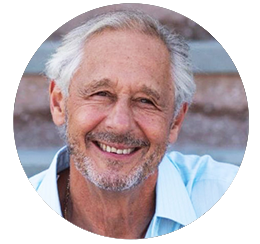
MICHAEL CONFORTI (USA)
Dr. Michael Conforti is a Jungian analyst and the Founder and Director of the Assisi Institute. He is a faculty member at the C.G. Jung Institute of Boston, the C.G. Jung Institute of New York, and for many years served as a Senior Associate faculty member in the Doctoral and Master's Programs in Clinical Psychology at Antioch New England. A pioneer in the field of matter-psyche studies, Dr. Conforti is actively investigating the workings of archetypal fields and the relationship between Jungian psychology and the New Sciences.
He has presented his work to a wide range of national and international audiences, including the C.G. Jung Institute - Zurich and Jungian organizations in Australia, Canada, Colombia, Denmark, Ecuador, Italy, Russia, South Africa, the Ukraine and Venezuela.
Dr. Michael Conforti is a Jungian analyst and the Founder and Director of the Assisi Institute. He is a faculty member at the C.G. Jung Institute of Boston, the C.G. Jung Institute of New York, and for many years served as a Senior Associate faculty member in the Doctoral and Master's Programs in Clinical Psychology at Antioch New England. A pioneer in the field of matter-psyche studies, Dr. Conforti is actively investigating the workings of archetypal fields and the relationship between Jungian psychology and the New Sciences.
He has presented his work to a wide range of national and international audiences, including the C.G. Jung Institute - Zurich and Jungian organizations in Australia, Canada, Colombia, Denmark, Ecuador, Italy, Russia, South Africa, the Ukraine and Venezuela.
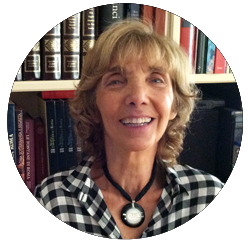
MAGDA DI RENZO (Rome, Italy)
Dr. Magda di Renzo is a Jungian Analyst, Psychologist, developmental psychotherapist, and member of the ARPA (Association for Research in Analytical Psychology) and of the IAAP (International Association for Analytical Psychology). She is the founder and director of the School of Specialization in Psychodynamic Psychotherapy working with the development issues of children, at The Institute of Orthophonology (IdO) of Rome. She is in charge of the Developmental Age Psychotherapy Service of IdO, and has promoted many researches in the field of childhood and adolescent pathologies, including the Turtle Project for children with autism. Lecturer in many schools of specialization in psychotherapy, she is the author and co-author of numerous publications, including Il colore vissuto (1998), Fiaba, disegno, gesto e racconto (2005), I significati dell’autismo (2007), Sostenere la relazione genitori-figlio nell’autismo (2011), Le potenzialità intellettive nel bambino autistico (2011), Il processo grafico nel bambino autistico (2013), and Autismo Progetto Tartaruga (2020).
Dr. Magda di Renzo is a Jungian Analyst, Psychologist, developmental psychotherapist, and member of the ARPA (Association for Research in Analytical Psychology) and of the IAAP (International Association for Analytical Psychology). She is the founder and director of the School of Specialization in Psychodynamic Psychotherapy working with the development issues of children, at The Institute of Orthophonology (IdO) of Rome. She is in charge of the Developmental Age Psychotherapy Service of IdO, and has promoted many researches in the field of childhood and adolescent pathologies, including the Turtle Project for children with autism. Lecturer in many schools of specialization in psychotherapy, she is the author and co-author of numerous publications, including Il colore vissuto (1998), Fiaba, disegno, gesto e racconto (2005), I significati dell’autismo (2007), Sostenere la relazione genitori-figlio nell’autismo (2011), Le potenzialità intellettive nel bambino autistico (2011), Il processo grafico nel bambino autistico (2013), and Autismo Progetto Tartaruga (2020).
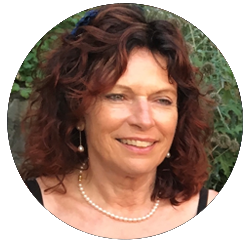
JACQUELINE DüRMüLLER (Switzerland)
Jacqueline Dürmüller is a Jungian Analyst who, for more than twenty (20) years, has worked with children and adults in a private practice and also includes the use of Sand-Play in her clinical practice. She graduated from The Adler Institut, Zürich, and from the Research and Training Centre in Depth Psychology according to C.G. Jung and Marie-Louse von Franz, Zürich. She is a published author and lectures internationally. Her main interest is in the symbolic understanding of inner and outer human experiences. Jacqueline is also a mother and grandmother. She and her husband - Jungian Analyst, Hansueli Etter - live in the former house of Marie-Louise von Franz and Barbara Hannah in Küsnacht, Zürich, Switzerland.
Jacqueline Dürmüller is a Jungian Analyst who, for more than twenty (20) years, has worked with children and adults in a private practice and also includes the use of Sand-Play in her clinical practice. She graduated from The Adler Institut, Zürich, and from the Research and Training Centre in Depth Psychology according to C.G. Jung and Marie-Louse von Franz, Zürich. She is a published author and lectures internationally. Her main interest is in the symbolic understanding of inner and outer human experiences. Jacqueline is also a mother and grandmother. She and her husband - Jungian Analyst, Hansueli Etter - live in the former house of Marie-Louise von Franz and Barbara Hannah in Küsnacht, Zürich, Switzerland.
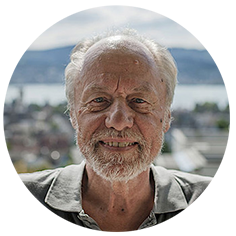
HANSUELI ETTER (Switzerland)
Hansueli F. Etter is a long-time colleague of M.L. von Franz, and founding member of The Research and Training Centre for Depth Psychology according to C.G. Jung and Marie-Louise von Franz in Zürich. He is also the president of the Foundation for Jungian Psychology in Kusnacht. Dr. Etter has a PhD in Anthropology and lectured for many years at the University of Basel. He graduated from the C.G. Jung Institute in Zürich in 1982 and works in private practice. His main interest and research lies in the topics of the religious dimension of Jungian psychology and in the secret relation between psyche and matter. He is a published author of many books and papers in German and in English.
Hansueli F. Etter is a long-time colleague of M.L. von Franz, and founding member of The Research and Training Centre for Depth Psychology according to C.G. Jung and Marie-Louise von Franz in Zürich. He is also the president of the Foundation for Jungian Psychology in Kusnacht. Dr. Etter has a PhD in Anthropology and lectured for many years at the University of Basel. He graduated from the C.G. Jung Institute in Zürich in 1982 and works in private practice. His main interest and research lies in the topics of the religious dimension of Jungian psychology and in the secret relation between psyche and matter. He is a published author of many books and papers in German and in English.
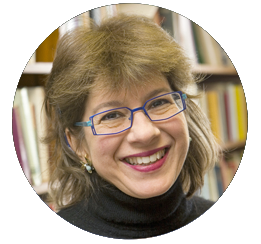
SUSANNAH HESCHEL (USA)
Biblical laws regarding impurity seem bizarre to people who read the text literally: what is the “impurity” of a corpse and how would a priest, sprinkling a mysterious potion, transform impurity into purity? In this presentation, Dr. Heschel will consider a particularly odd passage from the Hebrew Bible - Numbers Chapter 19 - and discuss how a radical Hasidic commentary of the 19th century interpreted in religious terms: with impurity as resentment and bitterness, while purity comes from the care and compassion of one person for another.
Biblical laws regarding impurity seem bizarre to people who read the text literally: what is the “impurity” of a corpse and how would a priest, sprinkling a mysterious potion, transform impurity into purity? In this presentation, Dr. Heschel will consider a particularly odd passage from the Hebrew Bible - Numbers Chapter 19 - and discuss how a radical Hasidic commentary of the 19th century interpreted in religious terms: with impurity as resentment and bitterness, while purity comes from the care and compassion of one person for another.
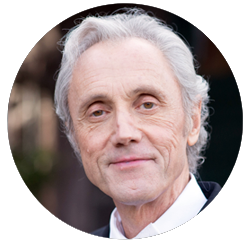
RICHARD TARNAS (USA)
Richard Tarnas is a professor of psychology and cultural history at the California Institute of Integral Studies in San Francisco, where he founded the graduate program in Philosophy, Cosmology, and Consciousness. He has also taught archetypal studies and depth psychology at Pacifica Graduate Institute in Santa Barbara. He is the author of The Passion of the Western Mind, which became both a best seller and a required text in many universities; and Cosmos and Psyche: Intimations of a New World View, which received the Book of the Year Prize from the Scientific and Medical Network, and is the basis for the upcoming documentary film Changing of the Gods. He is a past president of the International Transpersonal Association and served on the Board of Governors for the C. G. Jung Institute of San Francisco.
Richard Tarnas is a professor of psychology and cultural history at the California Institute of Integral Studies in San Francisco, where he founded the graduate program in Philosophy, Cosmology, and Consciousness. He has also taught archetypal studies and depth psychology at Pacifica Graduate Institute in Santa Barbara. He is the author of The Passion of the Western Mind, which became both a best seller and a required text in many universities; and Cosmos and Psyche: Intimations of a New World View, which received the Book of the Year Prize from the Scientific and Medical Network, and is the basis for the upcoming documentary film Changing of the Gods. He is a past president of the International Transpersonal Association and served on the Board of Governors for the C. G. Jung Institute of San Francisco.
